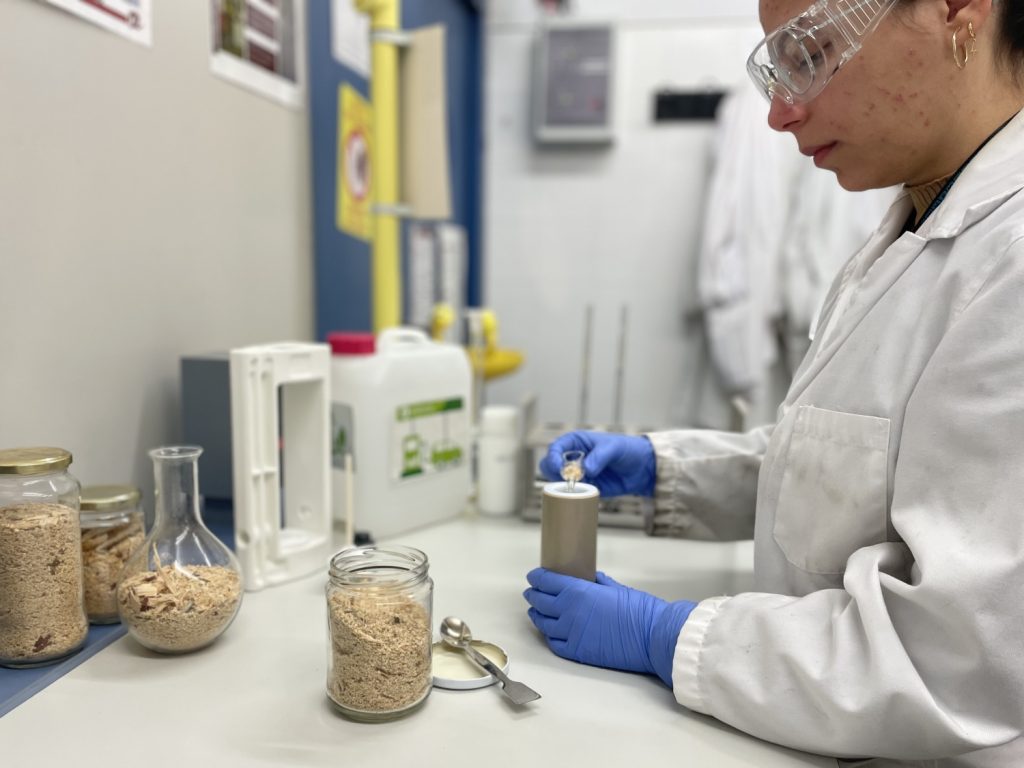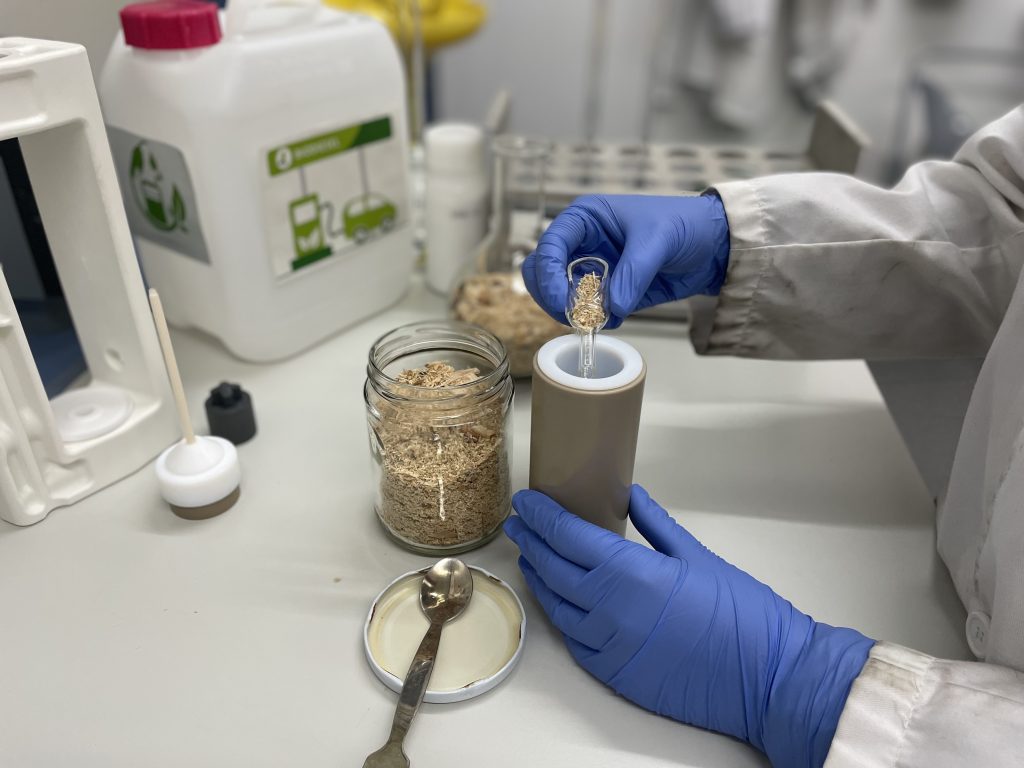07/12/2022
The URV leads a research project to produce biofuels, fertilisers and sensors from biomass
The researcher Yolanda Cesteros is leading the project, which aims to obtain products of high added value to contribute to the development of biorefineries

The researcher Yolanda Cesteros is leading the project, which aims to obtain products of high added value to contribute to the development of biorefineries
The Ministry of Science and Innovation has awarded the Universitat Rovira i Virgili a research project to produce biofuels, fertilisers, bioplastic precursors and sensors from lignocellulose waste, dry plant matter that is also known as biomass. The proposal is led by the researcher and lecturer Yolanda Cesteros, from the Department of Physical and Inorganic Chemistry, and will involve a research consortium from the URV, the University of Lleida and the Forest Science and Technology Centre of Catalonia. The project is financed by the European Union’s Next Generation funds as part of the Recovery, Transformation and Resilience Plan.
The aim is to use a variety of technologies to develop a broad portfolio of high added-value products obtained from wood-based lignocellulosic waste to contribute to the development of biorefineries in Catalonia and Spain. The URV’s interdisciplinary research team is completed by Joan Josep Carvajal, Maria Cinta Pujol, Maria Ercilia García Álvarez and Maria Dolores González.
Biorefineries are processing facilities that use a variety of technologies to convert biomass into chemical products, fuels and other materials. Lignocellulose is the most abundant renewable biomass and is considered the main feedstock for biorefineries, because it is inedible and does not compete with food crops. In Europe and Spain, there are very few biorefineries that use these lignocellulose resources. For this reason, research into their development could be strategic.
The aim of the project is to obtain biocomposites from forestry waste, such as sawdust, pine wood and chestnut wood. “We want to produce some platform molecules, such as those known as hydroxymethylfurfural, furfural or chloromethylfurfural,” explains the researcher Yolanda Cesteros, who has led the project. From these platform molecules and pyrolytic lignin, products of high added value will be obtained such as bioplastics, bioadhesives for wood applications, biofuels, agricultural applications and pressure and pH sensors.

The process requires the use of catalytic and biocatalytic technologies, eutectic solvents, thermochemical processes, ultrasound and microwaves. The aim is also to carry out life cycle assessment studies and an analysis of the value of the potential customer and the market with the aim of creating a map of potential biorefineries so that this technology can be implemented in Spain.
In addition to providing the national and international community with new technical and scientific knowledge, the research focuses on the transition to the circular economy, the mitigation of climate change, and the prevention and control of pollution. “We hope that this project can contribute to the transition to a production model based on decentralisation and sustainability in the framework of the circular economy,” concluded Cesteros.
